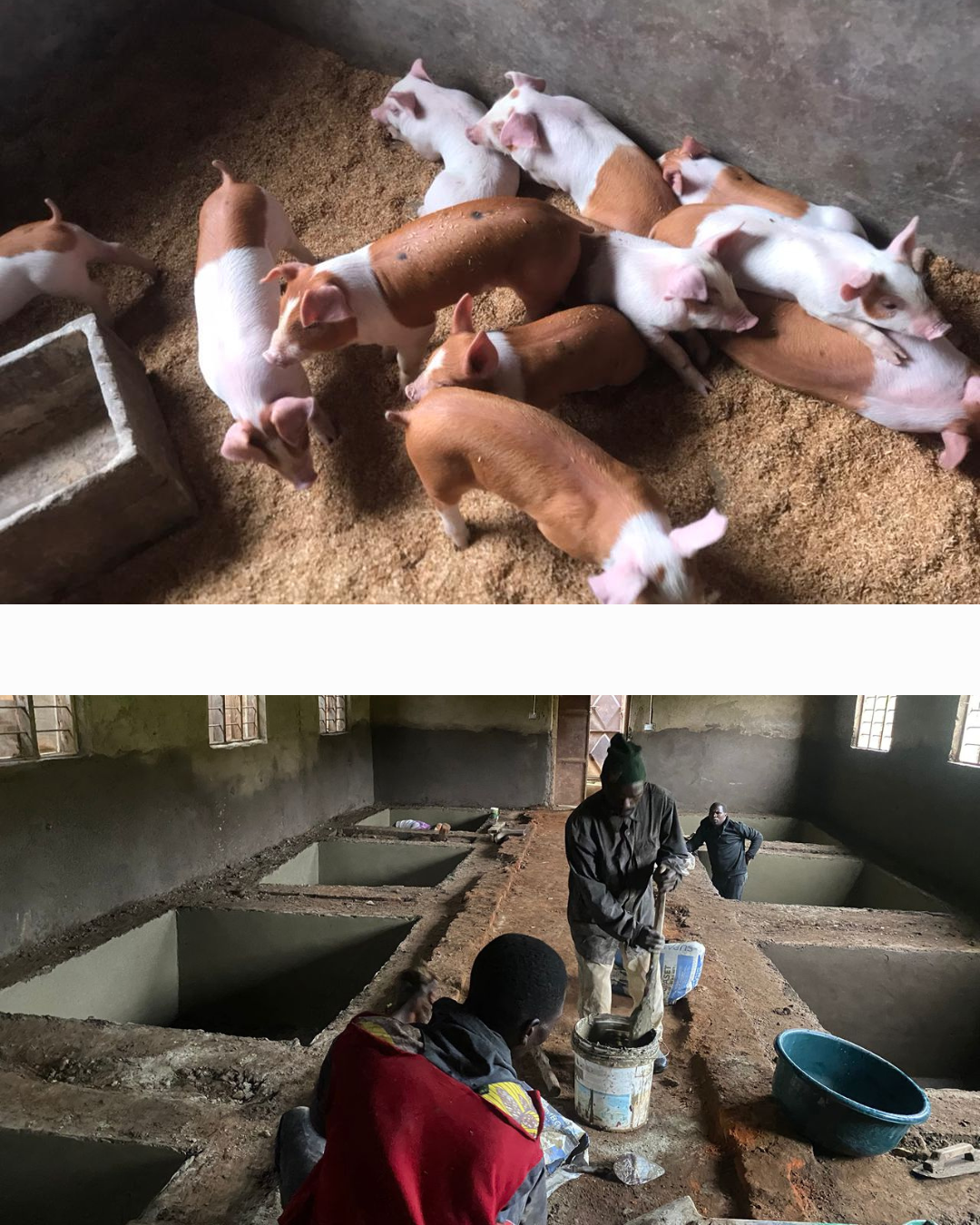Written by Aron Mwasile the dia-LOGOS East Africa Ministry Leader
For more than a century, missionaries in Africa have carried the gospel with courage, resilience, and sacrifice. From barefoot evangelists walking miles between villages to modern cross cultural workers venturing into unreached regions, the heartbeat of missions has always been faithfulness to Christ’s call.
But one question remains unresolved: how do we sustain African missionaries in a way that honors their calling and their context?
For too long, the default answer has been donations. Western churches, foreign agencies, or wealthy individuals send funds, and missionaries depend on these gifts to survive. This model helped establish churches and expand Christianity across the continent. But in today’s Africa, it is no longer enough.
We urgently need a new strategy—one that restores dignity, reduces dependency, and unleashes creativity.
From Rural to Urban: Missions Has Shifted
When Western missionaries arrived in Africa around 1900, only about 5% of Africans lived in urban areas. By the 1960s, when foreign mission agencies birthed local denominations and raised African evangelists, about 85% of Africans still lived in rural villages.
To be a missionary meant going into communities marked by poverty, low literacy, and little infrastructure. Missionary “strategy” often meant giving out used clothes, food, or free schooling—acts of compassion that also won community acceptance. Sustainability for missionaries, therefore, had to come from abroad, because the people they served were too poor to provide support.
That model made sense then. But Africa has changed. Today, over 54% of Africans live in urban areas. Mission is no longer primarily rural—it is urban. And urban people are not reached through handouts or aid distribution centers. They are encountered in marketplaces, offices, schools, and digital spaces.
Here’s the problem: someone seen as “jobless” or living on undefined foreign support will have little influence in Africa’s proud, professional urban communities. Missions is shifting from rural to urban, and missionaries must not only change their locations but also their thinking.
My Journey: From Poor Graduate to Pig Farmer Missionary
My own calling to missions began at university, when a YWAM DTS (Discipleship Training School) team came to our campus for mission mobilization. I committed in my heart to become a full-time missionary. \
But reality hit me hard. The perception then—and perhaps still today—was that missionaries were either wealthy wazungu (white foreigners) or poor African beggars. Being raised in extreme poverty, graduating from university was seen by my family as salvation. To “waste” that degree on a missionary life without salary or reliable income felt like betraying the very family that had sacrificed beyond their means to educate me. Even my church leaders discouraged me, perhaps fearing I would return every month asking for financial support.
After graduation, I joined a local missions organization working among Muslims along the East African coast. During orientation, I was told: “We live by faith. We have no salary for you. Your support will come from your church and friends.” An allowance was mentioned, but it depended entirely on what I could raise from my networks. The truth was, I had none.

So I turned to my training. With a degree in applied zoology, I started a pig farm with just four pigs. Within three years, that herd grew to 350. From this farm, I was able to support myself, my family, and even help other missionaries.
The farm expanded into new opportunities. I started a local English-medium school, Heavenly Hope, to serve my community. Later, I organized the business into Farm43 Africa (Farm for Three), because I farm for three reasons:
1. Increasing household incomes through a local circular economy,
2. Creating decent jobs (direct and indirect), and
3. Supporting missions by promoting sustainable kingdom initiatives.
Today, Farm43 is becoming a fully integrated agribusiness—breeding pigs, manufacturing feed, and processing pork. Through this journey I have learned something profound: business is not just a tool for mission (“business as mission”); business itself is mission (“Business is mission”).
Dignity: More than Survival
Relying on donations strips African missionaries of dignity. Constantly begging for survival reduces them to dependents rather than equal partners in the gospel. Locally, many are viewed as “jobless.” Because they lack formal income, they cannot access bank loans, contribute to pension systems, or be recognized as economic contributors. In practice, many missionaries are locked out of the very systems that provide stability for ordinary citizens.
By contrast, when missionaries sustain themselves, they command respect—even beyond their borders.
In June 2023, I traveled with an American friend on a mission trip to Bangladesh. At Dhaka airport, my colleague passed immigration with no questions, but I was held for two hours of interrogation: “What are you going to do in Bangladesh? What do you do back home? Who funded your trip?”
I explained that I am a businessman—owner of one of Tanzania’s leading pig companies (Farm43 Africa) and a school—and that my trip was fully funded by my businesses, paid with Farm43’s credit card. They verified the tickets and business documents. When the immigration boss returned, he smiled and said: “We don’t often get Africans here who fund their travels themselves. Well done.” He gave me his personal contact, expressed interest in visiting Tanzania, and asked to connect further.
The whole story changed when they realized I was self-sustained. Dignity opened doors that explanations never could.
Dependency: A Distorted Mindset
Foreign donations have also distorted the mindset of missions. In some places, a “true missionary” is now expected to be supported from abroad. Instead of missionaries looking to their local churches, local churches expect support to flow through missionaries from their foreign connections. In this way, the missionary becomes a pipeline for foreign aid rather than a servant sent by the local body.
This makes raising local support nearly impossible. Churches feel exempt from responsibility, and missionaries risk drifting away from the very communities they serve.
A new model must restore local ownership. Even small contributions from local believers create accountability and shared responsibility. Missionaries should belong first to their communities, not to distant donors.
Creativity: Africa’s Hidden Potential
Perhaps the greatest hidden cost of donation-dependency is the death of creativity. Donors rarely send money alone. They send conditions and strategies. Even when those strategies don’t fit, African missionaries accept them for fear of losing support.
This suffocates innovation. The irony is painful: Africa, the world’s most creative continent, is often forced to follow imported models that kill its imagination.
In early 2023, I traveled to South Sudan for a research trip to understand life for refugee returnees after hopes of peace. Driving from Nimule to Juba, I was saddened by the emptiness of villages that were once vibrant. A few returnees tried to revive life in decayed houses, but the struggle was immense. Arriving in Juba, however, I was astonished by the overwhelming number of youth—no longer defined by tribal identity but united in one thing: they were job seekers.
Most had lived in refugee camps, relying on aid for survival. But now they wanted jobs, dignity, and a chance to rebuild their nation. As I wrestled with mixed emotions, one question echoed in my mind: “How can they be helped?” The easy answer was to mobilize missionaries and create projects to donate basic needs. That would help in the short term. But another vision struck me: what if, instead of mobilizing missionaries as donors, we mobilized Christian businessmen and women as investors?
Imagine businesses established in South Sudan to employ returnees, pay salaries, and build skills—not just distribute handouts. This would not only provide income but also restore dignity, instill discipline, and contribute to national rebuilding. And for the missionary investor, sustainability would come from the profit of their enterprise—not foreign donations.
This is the kind of creativity Africa needs in missions today.
A Way Forward: Sustainable, Locally Rooted Missions
So, what might a new strategy look like?
1. Tentmaking and Business-for-Mission
Like Paul the tentmaker, missionaries can sustain themselves through business or professional work while ministering.
2. Mission-Focused Social Enterprises
Projects like schools, farms, or clinics can serve community needs while providing income streams for mission.
3. Local Church Empowerment
African congregations must be taught that mission is their responsibility. Even modest giving creates ownership.
4. Western Partnerships
Western Christians can invest strategically in sustainable mission initiatives without creating dependency.
5. Skill Development and Innovation
Missionaries should be trained not just in theology but also in entrepreneurship, trades, and financial management.
From Business as Mission to Business is Mission
Often, when Christians talk about business and ministry, they separate the two. Ministry is placed on one side, business on the other, and then we ask: “How do we balance them?” This is what is usually called business as mission—using business as a tool to support mission, while treating mission itself as something separate.
But I believe this separation is the problem. In Africa especially, where issues of corruption, poverty, and unemployment dominate public life, business and ministry cannot afford to be divided. Instead, they must be fused together. Business itself must become ministry, and ministry must be expressed through business.
When business is integrated with Christian values, it stops being a “double life.” The same work that generates profit also disciples employees, provides jobs, restores dignity, and transforms society. In this way, business is no longer just a tool for funding mission— it is mission.
This approach is particularly crucial in Africa. The traditional model of ministry—focused on pulpits, crusades, and charity—has often had limited impact in addressing structural issues like unemployment, corruption, and economic injustice. By branding business as ministry, we bring Christian influence into the marketplace itself, where transformation is most needed.
Jesus called us the “salt of the earth.” Salt does not stand apart from food; it dissolves into it to make an impact. In the same way, mission cannot remain separate from the economic, social, and cultural life of Africa. It must dissolve into it. Africa does not only need conversion; it needs transformation. And one of the most relevant vehicles for this transformation is business—not business as mission, but business is mission.
A Balanced Model: Old Support Still Matters, But in Partnership
Not every missionary will be able to run a business or sustain themselves through enterprise. Some are called into contexts—such as war zones, refugee camps, or highly restricted areas— where doing business is not possible. Others are involved in unique ministries that will continue to depend on charitable support.
This means we must not dismiss the traditional model entirely. Throughout history, the Western church has faithfully raised support for missionaries through donations, offerings, and mission agencies. In certain contexts, this style of support remains necessary and will continue to be relevant for years to come.
But what must change is our mindset. Instead of Africa always depending on the West to fund its missions, we need to envision a future where African businessmen and women rise as kingdom supporters. If business is mission, then the profits of business should also be seen as profits for the kingdom—funding not only the missionary’s personal work, but also sustaining others who cannot generate income themselves.
In this way, Christian entrepreneurs in Africa become a “church in the marketplace”— integrating faith and work, and directing business success toward mission support. As Paul urged the wealthy: “Command them to do good, to be rich in good deeds, and to be generous and willing to share” (1 Timothy 6:18).
At the same time, this is not a call for Africa to “go it alone” or cut ties with the West. God’s plan is not independence but interdependence—the Body of Christ working together across continents to accomplish the Great Commission. The West has gifts of experience, skills, and resources that remain vital for global mission, while Africa also carries gifts of resilience, creativity, and fresh faith that the global church needs. True partnership means honoring these gifts mutually, learning from one another, and collaborating in ways that foster dignity, sustainability, and fruitfulness.
As Scripture reminds us: “He changes times and seasons…He gives wisdom to the wise and knowledge to the discerning”(Daniel 2:21). In this new season, the Spirit is calling us to a new kind of partnership—no longer one-sided help that unintentionally harms, but strategic collaboration that unleashes the best of every part of Christ’s Body.
So yes, donations still matter—but the center of gravity must shift. Africa must develop its own streams of mission support through business-is-mission initiatives, while partnering with the wider global church in a way that is mutual, dignifying, and truly kingdom-oriented.
Conclusion: From Survival to Sustainability
Africa stands at a crossroads. The old donation model—shaped in a rural era of poverty—has reached its limits. It has undermined dignity, created unhealthy dependency, and stifled creativity. Worse, it has left missionaries marginalized in their own societies, excluded from economic systems and dismissed as “jobless.”
But a new vision is rising. If the African church embraces strategies that are rooted in dignity, local ownership, and innovation, missions can be sustained in ways that are truly African, truly biblical, and truly sustainable.
The future of missions in Africa will not be written by endless appeals for charity. It will be written by bold missionaries who stand with dignity, belong deeply to their communities, and unleash the creativity God has planted in them.
If we make this shift, mission work in Africa will not just survive. It will thrive—leaving a legacy of faith, resilience, and transformation for generations to come.

